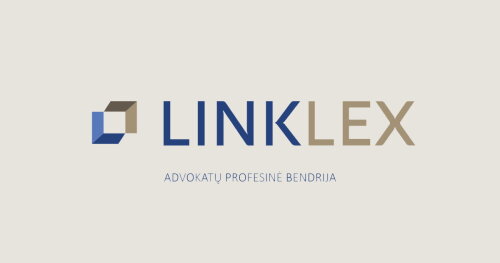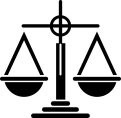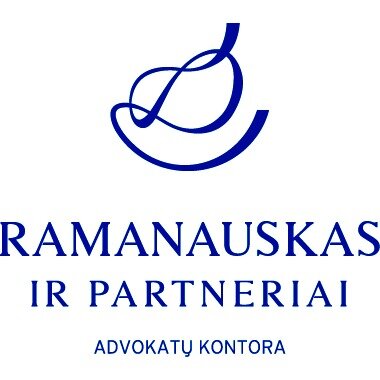Best Due Diligence Lawyers in Republic of Lithuania
Share your needs with us, get contacted by law firms.
Free. Takes 2 min.
Or refine your search by selecting a city:
List of the best lawyers in Republic of Lithuania
About Due Diligence Law in Republic of Lithuania:
Due diligence in Republic of Lithuania is a legal process that involves investigating a business or individual before entering into a transaction or agreement. This process helps to identify any potential risks, liabilities, or issues that may affect the deal. Due diligence is crucial in ensuring that all parties involved are fully informed and protected. It may involve reviewing documents, conducting interviews, and analyzing financial records.
Why You May Need a Lawyer:
There are several situations where you may need a lawyer for due diligence in Republic of Lithuania. Some common reasons include:
- Assistance in reviewing and analyzing legal documents
- Help in understanding the local laws and regulations
- Negotiating terms and agreements with other parties
- Resolving any disputes or conflicts that may arise
Local Laws Overview:
In Republic of Lithuania, due diligence is governed by various laws and regulations. Some key aspects to consider include:
- The Civil Code of the Republic of Lithuania
- The Law on Companies of the Republic of Lithuania
- The Law on Securities Market of the Republic of Lithuania
- Regulations on Anti-Money Laundering and Counter-Terrorist Financing
Frequently Asked Questions:
1. What is the purpose of due diligence in Republic of Lithuania?
Due diligence helps to uncover any potential risks, liabilities, or issues that may impact a transaction or agreement.
2. How long does the due diligence process typically take?
The duration of due diligence can vary depending on the complexity of the transaction and the amount of information to review.
3. What are the key documents to review during due diligence in Republic of Lithuania?
Some key documents to review include financial statements, contracts, corporate records, and regulatory filings.
4. Is due diligence required by law in Republic of Lithuania?
While due diligence is not mandatory by law, it is highly recommended in most business transactions to ensure that all parties are fully informed.
5. How can a lawyer help with due diligence in Republic of Lithuania?
A lawyer can provide legal expertise, review documents, negotiate terms, and help resolve any legal issues that may arise during due diligence.
6. What are some common risks to look out for during due diligence?
Common risks include legal disputes, financial liabilities, regulatory issues, and reputational risks.
7. How can I verify the information provided during due diligence?
You can verify information by conducting interviews, requesting additional documents, and performing background checks on individuals or entities involved.
8. What happens if issues are uncovered during due diligence?
If issues are uncovered, parties may need to renegotiate terms, seek legal advice, or even cancel the transaction altogether.
9. What should I do if I suspect fraud during due diligence?
If you suspect fraud, notify your lawyer immediately and consider reporting the issue to the appropriate authorities.
10. How can I ensure confidentiality during the due diligence process?
You can ensure confidentiality by having parties sign non-disclosure agreements and limiting access to sensitive information only to those involved in the process.
Additional Resources:
For more information on due diligence in Republic of Lithuania, you can contact the Lithuanian Bar Association or visit the official website of the Ministry of Justice of the Republic of Lithuania.
Next Steps:
If you require legal assistance in due diligence in Republic of Lithuania, it is recommended to contact a qualified lawyer who specializes in this area. They can guide you through the process, protect your interests, and ensure that all legal requirements are met.
Lawzana helps you find the best lawyers and law firms in Republic of Lithuania through a curated and pre-screened list of qualified legal professionals. Our platform offers rankings and detailed profiles of attorneys and law firms, allowing you to compare based on practice areas, including Due Diligence, experience, and client feedback.
Each profile includes a description of the firm's areas of practice, client reviews, team members and partners, year of establishment, spoken languages, office locations, contact information, social media presence, and any published articles or resources. Most firms on our platform speak English and are experienced in both local and international legal matters.
Get a quote from top-rated law firms in Republic of Lithuania — quickly, securely, and without unnecessary hassle.
Disclaimer:
The information provided on this page is for general informational purposes only and does not constitute legal advice. While we strive to ensure the accuracy and relevance of the content, legal information may change over time, and interpretations of the law can vary. You should always consult with a qualified legal professional for advice specific to your situation.
We disclaim all liability for actions taken or not taken based on the content of this page. If you believe any information is incorrect or outdated, please contact us, and we will review and update it where appropriate.
Browse due diligence law firms by city in Republic of Lithuania
Refine your search by selecting a city.














